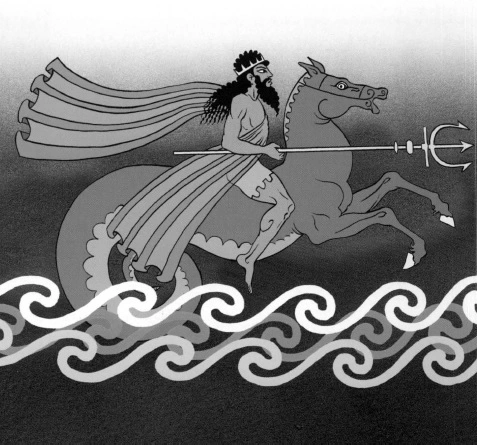Laocoön Greek A priest of Apollo and Poseidon; son of Priam, king of Troy, and of Hecuba.
Publié le 26/01/2014

Extrait du document

Laocoön Greek A priest of Apollo and Poseidon; son of Priam, king of Troy, and of Hecuba. Laocoön made Apollo angry by marrying and begetting children, breaking his priestly vow of celibacy. The Trojans had chosen Laocoön to make sacrifices to Poseidon, whose priest they had murdered nine years earlier. Before he went to the altar with his two sons, Laocoön warned Priam to beware of the Trojan horse. (See The Wooden Horse of Troy, under Trojan War.) Laocoön said that he feared the Greeks, especially when they brought gifts. From this, "a Greek gift" has come to mean a treacherous gift. As Laocoön and his twin sons, Antiphas and Thymbreus, stood at the altar of Poseidon, two gigantic serpents, sent by a vengeful Apollo, coiled about them and crushed them to death. A famous statue of Laocoön and the serpents was discovered in Rome in 1506. It is believed to date from the second century b.c., and now stands in the Vatican Museum.
Liens utiles
- Paris Greek Son of Priam, the king of Troy, and of Hecuba.
- Laomedon Greek First king of Troy; father of Priam, Hesione, and others.
- Priam Greek King of Troy during the Trojan War, though too old to take an active part in the war.
- Seven Against Thebes Greek The name given to the conflict between the rulers of the kingdom of Thebes and the rebels who challenged the king for the throne.
- Iphicles Greek Halfbrother of the hero Heracles; son of Amphitryon, a prince of Tiryns, and his wife, Alcmene, who was a daughter of the king of Mycenae; husband to Automedusa, and later, to the youngest daughter of King Creon of Thebes.





